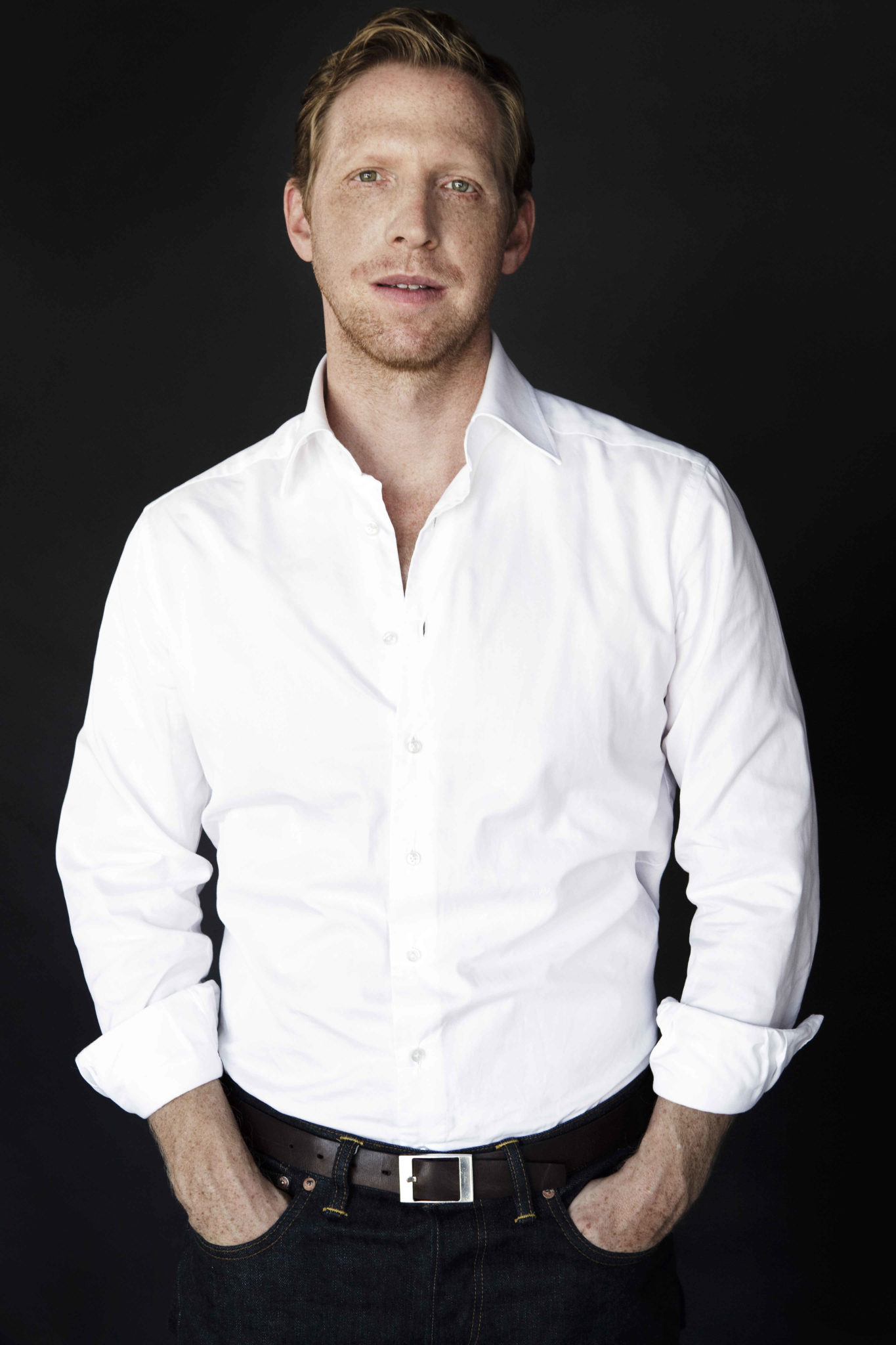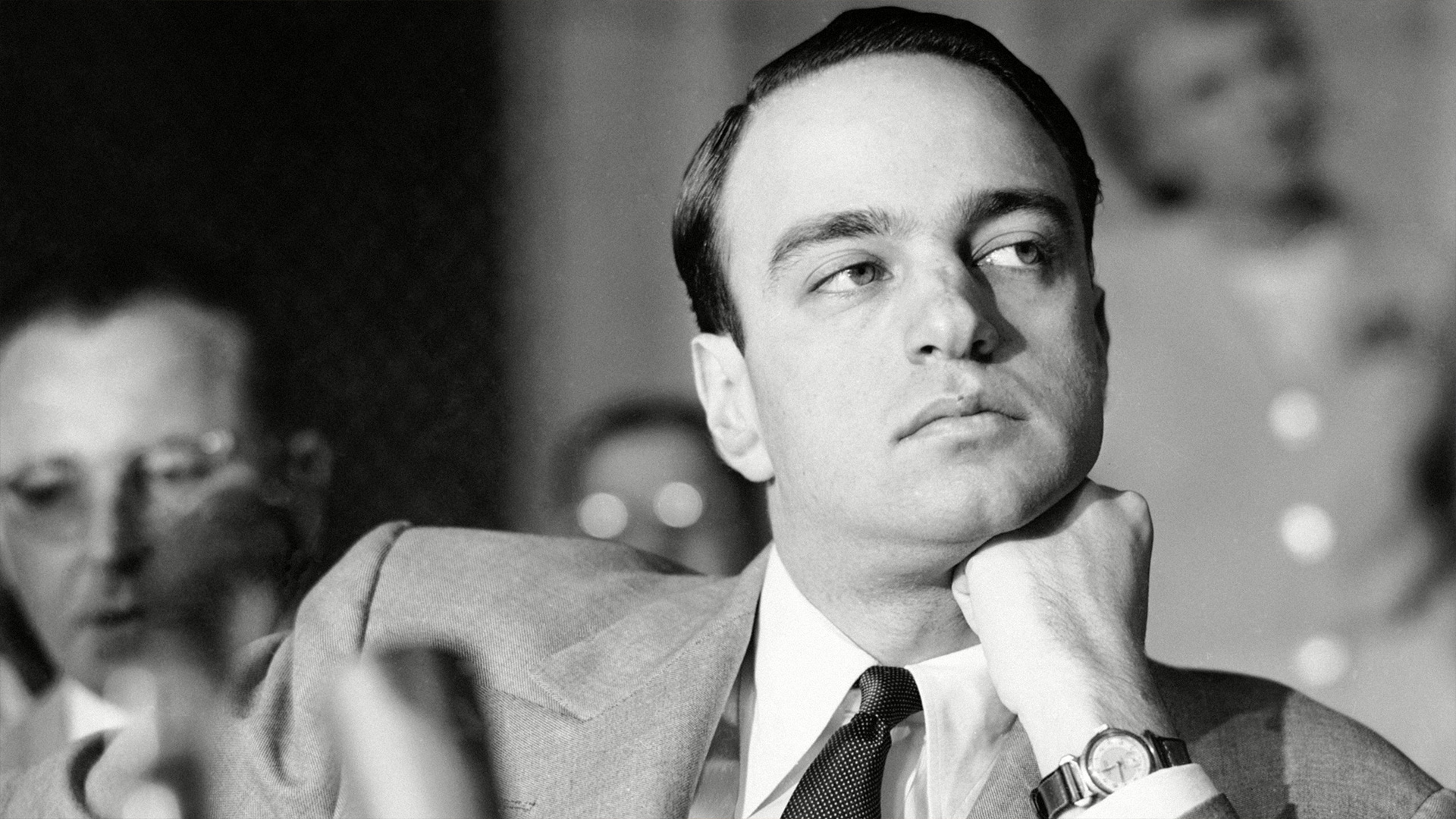
Sony Pictures Classics
Matt Tyrnauer’s Where’s My Roy Cohn? is one of two documentaries about the late lawyer seeing release this fall. (Ivy Meeropol’s film about Cohn will world-premiere at the New York Film Festival on Sept. 29.) The fourth film Tyrnauer has released since 2017, it shows his background as a journalist (he wrote for the now-famous Spy magazine and has an extensive history of work for Vanity Fair), with access to archival footage of interviews with Cohn. Tony Kushner’s play Angels in America may be the main reason millennials have even heard of Cohn, who died of AIDS at 59 in 1986, five weeks after being disbarred. Where’s My Roy Cohn? tells his life story, emphasizing the effects of internalized homophobia and anti-semitism. Cohn emerges as a real-life version of the self-hating gay fascist protagonist of Bernardo Bertolucci’s The Conformist. It suggests Cohn was a bridge from Joseph McCarthy, with whom he started out working, to Donald Trump, who picked up his open embrace of cruelty.
Tyrnauer’s films have investigated crucial corners of American history: urbanism (Citizen Jane: Battle for the City), the ’70s’ embrace of celebrity culture (Studio 54), and the Hollywood closet (Scotty and the Secret History of Hollywood.)
StudioDaily: Roy Cohn has had an odd afterlife as a fictional character. Did you think of him in relation to fictional anti-heroes?
Matt Tyrnauer: I think most documentary filmmakers would say truth is stranger than fiction, so for me he takes the cake. You really have to go to the extreme with Cohn. I’d say he most reminded me of Satan! I don’t consider the Bible to be a work of nonfiction, actually, although some people would disagree. But he really did seem Satanic. I’d say that about Dick Cheney too. People will tell you it’s a lot more fun to write the villain, and he certainly was no exception to that rule.
As much as he and other people said that he was ugly, I don’t think his looks had that much to do with it. If you look at his eyes, they just seem mean and cruel.
I had a kundalini yoga teacher who was very spiritual and believed you could read people’s faces. To that extent, he had these blue eyes that seem dead in some photographs. Early in life, he acquired a scar down the middle of his nose from a botched nose job. His mother thought his nose was too large and at the time, Jewish people felt a stigma around big noses. They feared being made fun of. I don’t know if that was a cause and effect. It’s not pretty. There was a lack of inner beauty as well.
How was it different to approach this film from films where your subject is still alive?
I’ve made cinema vérité and films that are mostly archival. This falls into the latter category. It’s an archival film that has talking heads and witnesses in it. It’s a very different experience when you’re dealing with a subject who’s in front of your camera and you’re following them. You have a protagonist wiggling. It’s a different form of storytelling. In this form, you’re confined to archival footage. I don’t really do recreations, as you would normally see on the History Channel. I will shoot some things to create an impressionistic montage, but it’s a different set of muscles. This film is more essayistic. It’s a political film about a time in the past. But Roy Cohn lived a televised life. He emerged at the dawn of television in the 1950s. He threw himself in front of cameras his entire life. He lived a high-profile career in the world’s biggest media city. There was no shortage of footage. One thing I try to do in my archival films is find footage no one’s seen before. We did manage to do that here. We had access to outtakes from two 60 Minutes pieces made on Cohn, one in the early ’70s and one in the mid ’80s. There were photos from a private archive made by Cohn himself, found in a secret archive.

Roy Cohn (left) and Donald Trump
Sony Pictures Classics
To me, the audio and video footage of Cohn is the most interesting part of the film because he says “I hate hypocrisy, I’m an outsider to the establishment,” which is obviously contradictory. To what extent do you think he was conscious about that?
That’s a good question. He says that as one of his key traits, he hates hypocrisy. He was a pathological liar, prone to habitually lying about himself and everything else that suited his purposes. Whether he realized that he was lying is another question. I think he was pathological to such a degree that, much like his protégé Donald Trump, you can play the opposite game to get the truth. So when Cohn says, “I hate hypocrisy,” he means that he’s the greatest hypocrite who ever lived. But he was no dummy. Quite the opposite. He was frighteningly brilliant. I can only speculate whether that extended to a reservoir of self-knowledge.
Cohn’s character in Angels in America says “I’m a heterosexual man who has sex with men.” When [journalist] Ken Auletta asks him about his sexuality, he goes on about how macho he is but doesn’t really deny being gay. Do you think he had any kind of sophisticated awareness about what gayness means?
I like to look at people in context. If you look at the young Roy Cohn, he was born in the 1920s and came of age in the 1930s and 1940s. He was a gay, Jewish rich kid. Like virtually everyone else who was gay at that time, he was not able to publicly express his homosexuality. Your life could be ruined, you could be ostracized, locked up in a mental hospital or lose all your career prospects. There’s nothing unusual about hiding your sexuality at the time. Whether it was the right thing you have to look at on a case-by-case basis. In his case, he comes from a prominent, extremely wealthy background. Anyone who was openly gay would have no future in a law career then. That’s not really the problem. The problem is his epic hypocrisy. He’s a gay man who very early in his career, ruins the lives of other gay people by participating in the lavender scare, which was an organized persecution of gay people in the government. He was a practicing homosexual who attacked other people that had the same identity he did and made them his victims because he had a desire for self-advancement. That’s evil. And he did it right out of the starting gate in his early 20s as a chief counsel for McCarthy’s notorious witch hunt. He never gives up the game. He just kept doubling down throughout his life. So I don’t give him any truck. He showed the world who he was early in his career and never walked it back. He should be called out on that posthumously.

Senator Joseph McCarthy (left) covers the microphones with his hands while having a whispered discussion with his chief counsel, Roy Cohn, during a committee hearing in Washington.
Photo by AP/REX/Shutterstock; courtesy Sony Pictures Classics
Your previous film was Scotty and the Secret History of Hollywood, which is about a queer man during the same period who has a much different and more positive attitude towards sexuality. Looking back, do you see connections between them?
I think that Scotty Bowers is a character who has no shame about his sexuality. He seems immune from it and lived a very noble life. He’s a very unusual case. He’s now 96 years old. He would be older than Cohn if Cohn were alive today. He lived a life of freedom and acceptance and provides an interesting contrast to someone like Cohn, who was a powermonger intent on self-advancement. Cohn accused people of what he felt guilty of himself.
There’s a narrative version of Scotty in the works. Are you directing it yourself?
It’s an adaptation of the documentary. I’m producing it at the current moment. The plan is for someone else to direct it.
Where’s My Roy Cohn? opens today at Film Forum and The Landmark at 57 West in New York City and at ArcLight Cinemas Hollywood and The Landmark in Los Angeles.
Did you enjoy this article? Sign up to receive the StudioDaily Fix eletter containing the latest stories, including news, videos, interviews, reviews and more.









